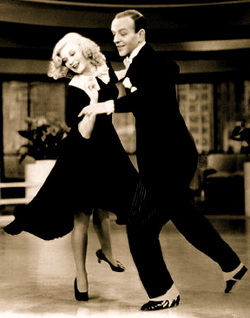5 Steps to Help You Rediscover Passion for Life and Leadership Step 5
Emotional intelligence (EQ) has much to do with relating well to others, being able to “read” and respond appropriately to them. In that, EQ is a lot like dancing.  When dancing, if you are out of sync with your partner the dance neither looks good nor ends well. Being in sync with your dance partner is largely about awareness: what is the next move, how do you respond, what’s the appropriate next step? In the same way, when you interact with others, if you lack the ability to detect the emotions of others – especially family, friends, and colleagues – those interactions usually neither look good nor end well. Last week we looked at the aspects of EQ that pertain to becoming aware of and managing your emotions. This week let’s look at the aspects of EQ that relate to social awareness of others’ feelings, then using that awareness to manage those relationships in healthy, meaningful, and productive ways. Daniel Goleman provides a model that refers to two moves in the dance of relating to others: social awareness and social skill.
When dancing, if you are out of sync with your partner the dance neither looks good nor ends well. Being in sync with your dance partner is largely about awareness: what is the next move, how do you respond, what’s the appropriate next step? In the same way, when you interact with others, if you lack the ability to detect the emotions of others – especially family, friends, and colleagues – those interactions usually neither look good nor end well. Last week we looked at the aspects of EQ that pertain to becoming aware of and managing your emotions. This week let’s look at the aspects of EQ that relate to social awareness of others’ feelings, then using that awareness to manage those relationships in healthy, meaningful, and productive ways. Daniel Goleman provides a model that refers to two moves in the dance of relating to others: social awareness and social skill.
- Social Awareness is the ability to sense what others are feeling, understand situations from the perspective of others, and cultivate relationships with a diverse range of people.
When is a conversation most frustrating to you? Is it not when you are sharing something
that is very emotional to you – that is, you feel strongly about it – and the person with whom you are sharing does not seem to connect with you emotionally?
Social awareness is what makes a person able to listen to others and connect with the feelings behind the words being expressed. In his model of EQ, Goleman refers to this as empathy. (Emotional Intelligence – Why It Can Matter More Than IQ).
Showing empathy can sometimes be very difficult, especially in midst of a heated argument. But when you are self-aware you are better able to take control of your feelings and try to understand the other person’s feelings as well. When you do this, you gain understanding of why a person feels or behaves the way they do, and the motivation behind that feeling or behavior.
Social awareness requires you to suspend judgment especially when you do not agree with the other person’s position.
I recall working with a colleague who taught me the art of suspending judgment especially when dealing with sensitive and volatile issues. When I would give my judgment on a person’s behavior, she always reminded me that there could be a number of other reasons why the person was behaving as they were. At the time, her response drove me crazy. As I reflect on those experiences, I realize she was demonstrating a high level of EQ. I, on the other hand, was demonstrating a high level of emotional immaturity.
To be aware of and acknowledge the feelings of others does not require agreement. But it does allow you to validate and understand their feelings.
- Social Skill is what it all boils down to. The previous traits all help us to develop the ability to build healthy relationships with others; and healthy relationships are meaningful and productive.
If social awareness offers understanding of others, social skill offers a means of interacting with others that helps improve relationships and increase your general quality of life.
When you come down to it, social skill is friendliness with a purpose: moving people in a desirable direction.
People with social skill:
- know how to build rapport;
- know how to make people feel valued and understood;
- know how to listen without judgment or answers in mind;
- are easy to talk to, good team players and know how to find common ground when dealing with tough emotional issues; and
- are usually focused on building up others.
“It is very important to understand that
emotional intelligence is not the opposite of
intelligence, it is not the triumph of heart
over head – it is the unique intersection of
both.”
– David Caruso
So you think you can dance? Do you have the EQ to manage yourself and your relationships in healthy, meaningful, and productive ways? Be aware that within Goleman’s model of EQ these competencies are not considered to be innate. Instead, they must be cultivated over time in order to develop and improve how you live and lead. Unlike IQ, which is believed to be “fixed” by the time we reach adulthood, EQ is not. You can continue to develop your emotional intelligence throughout your lifetime. If you email me, I would be happy to send you a copy of Daniel Goleman’s article on EQ. If you want to develop your EQ so you can live and lead more effectively, meaningfully, and productively, contact us at 208 880 0307 or errolcarrim@gmail.com to set up a complimentary coaching session.
